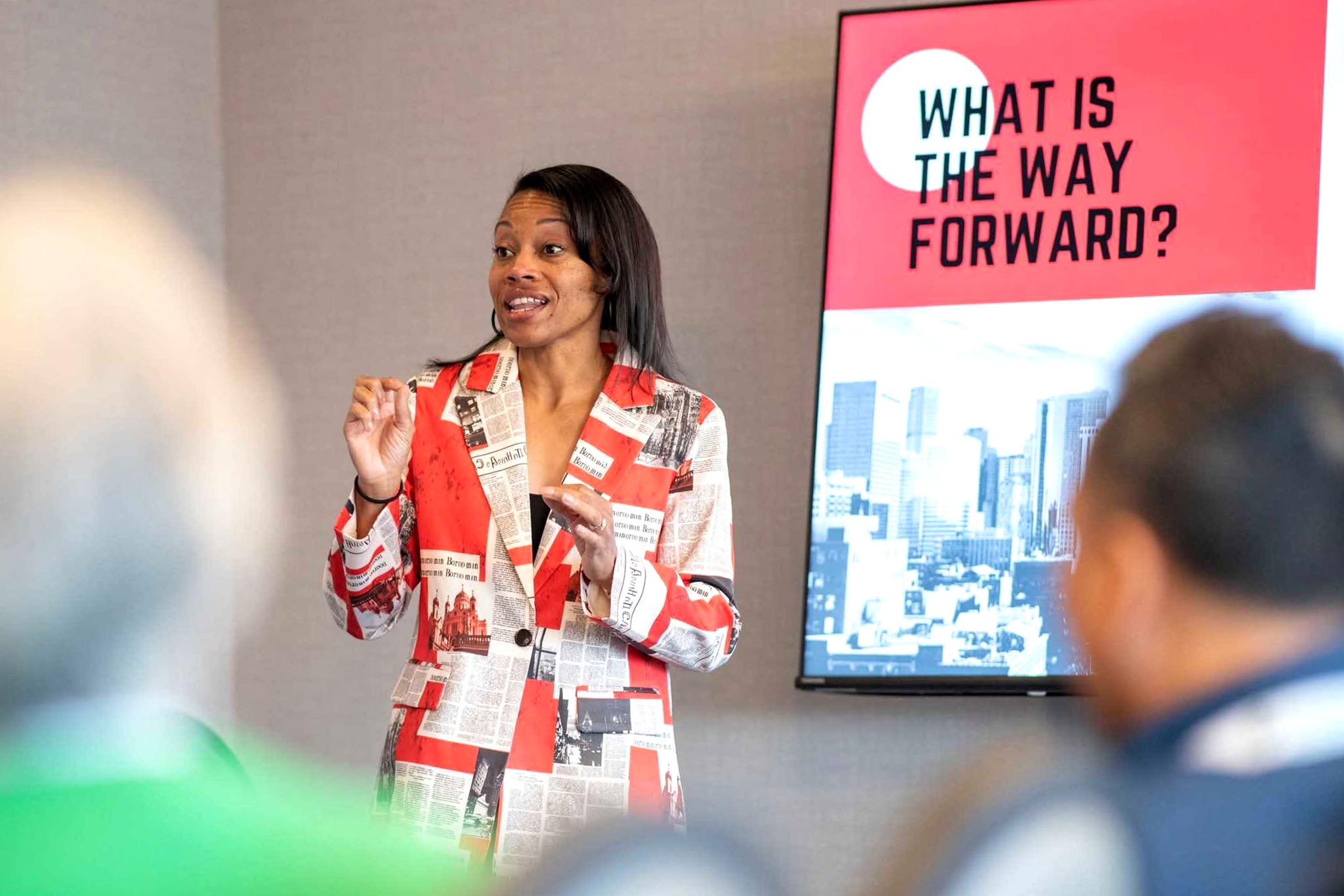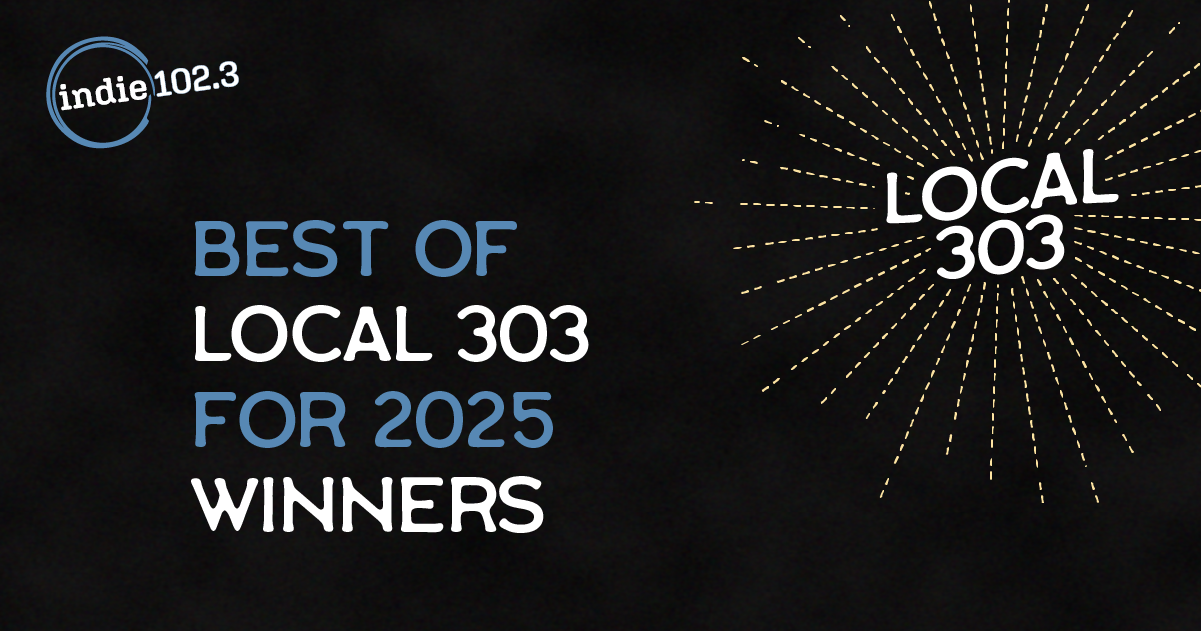
Sarah Burrows has been a Hillary Clinton fan longer than she’s been a Democrat.
The current Democratic presidential nominee first really caught Burrows’ attention during the primaries eight years ago, when Burrows was working on John McCain's failed campaign against Barack Obama.
“Hillary was sort of leading the primaries against Obama and I just – I thought, ‘Man, if she wins the party nomination, I think I’m going to have to go for her,’” Burrows recalls.
- Previously: Disenchanted GOPer Says Trump Makes Politics Great Again
- Previously: This Denver Voter's At Home Backing Outsiders Like Sanders
It was Clinton’s resume, and her willingness to be a “sore thumb” that attracted Burrows’ admiration; it’s term she uses to describe her own assertive personality too.
“She’s smart enough to work within the system and powerful enough to accomplish things,” says the 28-year-old Arvada resident. “Nobody really likes her, but I really respect her for getting it done regardless of support.”
The word Burrows uses over and over to describe her politics is “moderate.” She used to lean moderately right and now leans moderately left. But in today’s highly polarized political climate she only agreed to share her political views if we used her maiden name.
“I just know that it’s not the first thing that I want potential employers to see about me when they pull up my name,” says Burrows.
Ironically, I was introduced to Burrows by someone with extremely passionate politics, Trump supporter Erin Behrens. When I told Behrens I was interested in talking with people whose political identity has shifted over the years, she emailed me the number of a formerly-Republican friend she said had gone off to work on Wall Street and came back a Democrat.
I was intrigued – who does that?
‘Frog In A Boiling Pot Of Water’
It was Donald Trump’s New York that turned Sarah Burrows into a Democrat.
In Burrows’ fourth-generation Colorado family, politics comes with a strong pioneer flavor, going back to grandparents who fought their way into the middle class after surviving the Dust Bowl.
“There’s this whole story about living in a sod house in the Plains,” Burrows recalls, laughing. “Individuality and lack of government, lack of civilization. And self-reliance. Those are values that were central to my family’s political identity.”
Raised in that atmosphere, Burrows came out socially liberal but fiscally conservative. And she felt at home enough in the Republican Party that she interned for Republican Rep. Bob Beauprez and briefly worked on McCain’s campaign before the demands of college intervened.
Burrows’ political drift started three years ago, when her then-boyfriend, now-husband got a job with the NYPD. She followed him to the city and ended up working in finance, what she calls a ‘boiler room' type of job where the whole focus, she says, was on “separating the person on the other end of the phone from their money.”
When she and her husband would share stories of their days, the contrast shocked her. While she was driving her boss on errands in his Maserati, he was navigating Harlem, working with “the poorest of the poor.”
The economic disparity on display everywhere in New York City outraged Burrows’ belief in America as the land of boot-strap mobility.
“Inequity in America is very corrosive to democracy, if democracy is the idea that every person has equal say,” she says. “Rich people and businesses are influencing policy in a way that poor people cannot.”
Burrows says there was no clear moment when her politics shifted; instead she describes herself as more like a frog placed in a pot of slowly-heating water – eventually she found her concerns about inequality boiling over.
In 2014, during a heated New York mayor’s race that turned in large part on questions of economic disparity, she went to the polls and voted Democrat for the first time in her life.
At the same time that Burrows’ politics were undergoing this realignment, she was working across the street from Trump Tower. To have its most famous occupant now leading the party she so recently left feels strangely appropriate.
“He represents the type of person and the values and the lack of mobility in this country that caused me to move out of that camp.”
Pragmatist Not Ready To Provoke
Burrows and her husband moved back to Colorado last January. These days they live in a snug apartment near Olde Town Arvada with a formerly-feral Brooklyn street cat, a big dog that was once trained to hunt mountain lions, and a wildly fluffy rabbit named Q-Tip.
The setting has changed a lot, but Burrows’ political transformation has stuck.
She’s eagerly hoping Clinton wins on Tuesday, Burrows does little to make that support public. There’s no Clinton sign in her front window or sticker on her car. She says in a year of such divisive passions, displaying her preference just feels provocative and unproductive.
And Burrows has modest expectations for what her candidate might accomplish if she’s elected on Tuesday.
“I’m cynical because I know, like, Hillary’s not going to save us,” she says. “I don’t think the political system is going to change, right? The people who are in power are in power and they’re employing policies to keep them in power and that’s very hard to shift.”
Still, Burrows believes a Clinton presidency would move the country in the right direction when it comes to helping the poor and middle class.
In a year that has been marked by political extremes across the spectrum, from the Berners on the left to the right’s Trump train, Burrows sounds almost surprised by the mildness of her own passions. But that lighter approach may be helping to preserve one of her oldest friendships.
Burrows met Erin Behrens, the Trump-loving friend who introduced us, back in middle school. The two young women worked together, backpacked through Europe together, supported each other through breakups and attended each other’s weddings. They’ve known each other so long their voices even sound similar.
When it comes to the election, Burrows says they’re trying to get through it as best they can, by remembering the good in each other when they start disagreeing about politics.
“I don’t know where or how she and I found the ability to empathize and engage in meaningful dialogue, to have this political conversation and hold onto our beliefs but let the other person’s beliefs sort of wash over you," she says.
Burrows jokes that they have a bet going. If Hillary wins, Behrens will owe her a drink. But she’s refusing to consider the alternate outcome.
“She said, ‘What do I get when Trump wins?’” Burrows laughs, “and I said, ‘Well, he’s not going to win so it’s not an issue.’”
On Tuesday, Burrows will find out if she gets to collect on that drink or not.









